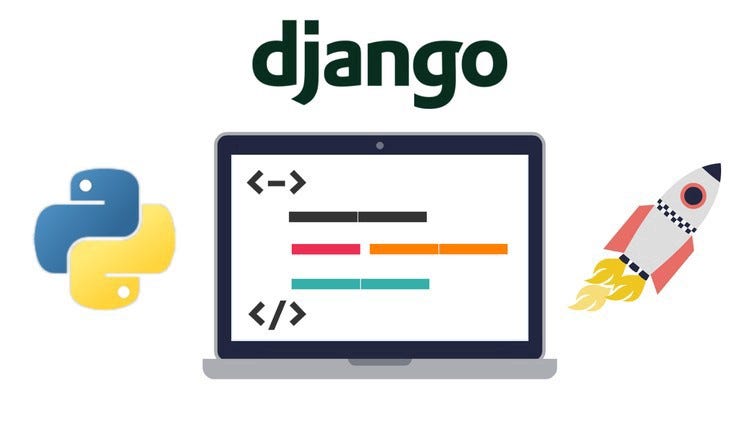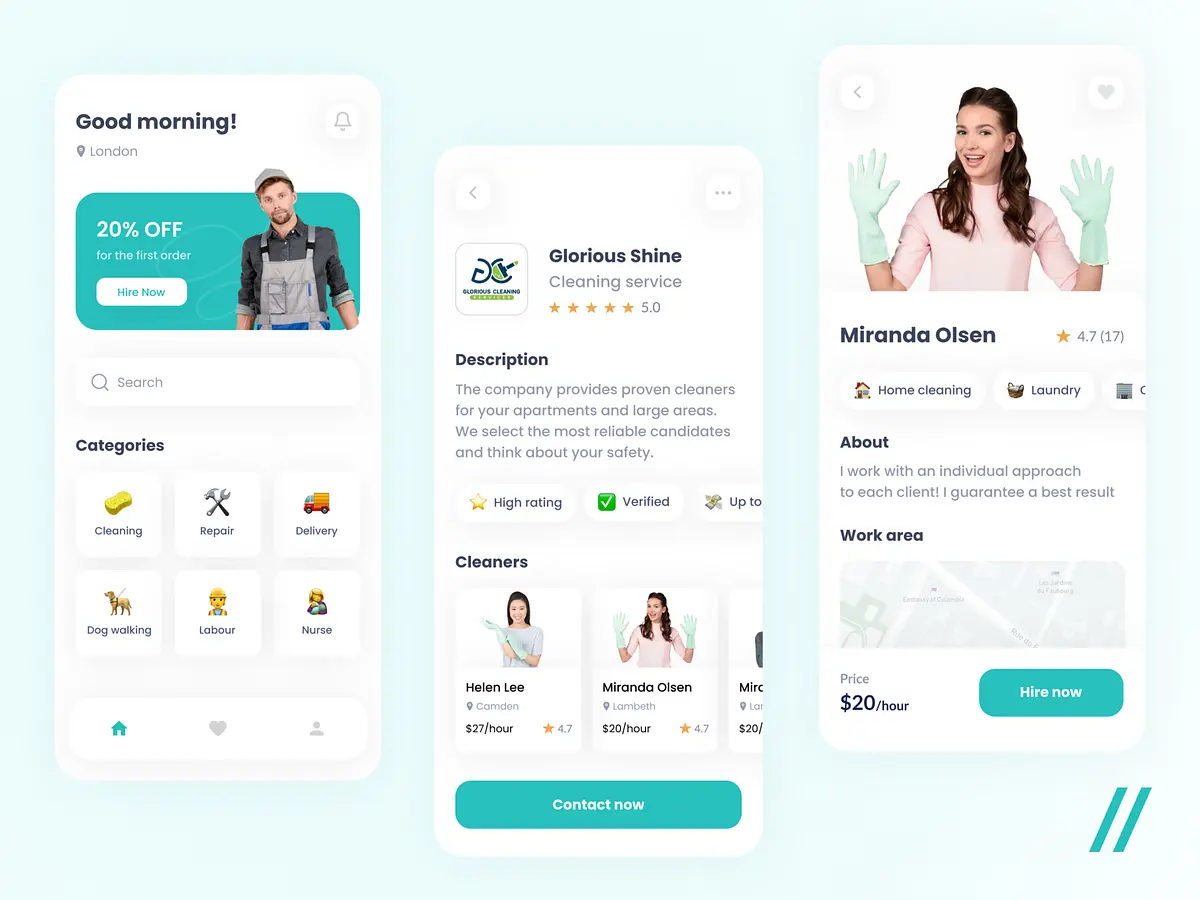Django vs Laravel – A Detailed Performance Breakdown


In development, frameworks act like helpful tools, making tasks simpler and more consistent. Every coding language usually has such a tool to make things smoother.
Both Django and Laravel are top recommendations for their respective languages. Now, let’s explore Django vs Laravel, which is your perfect choice.
1. Django
Crafted in Python, Django is a framework that helps create digital projects quickly and efficiently. With built-in tools for the SQLite database, it’s adaptable, scalable, and secure.
Consider setting up a digital library, a social hub, or an information site. Django has got you covered. It can seamlessly integrate with various front-end frameworks to display a wide range of content.
A quick backstory: Adrian Holovaty and Simon Willison introduced Django in 2003 while working on digital tasks for the Lawrence Journal-World newspaper. The name is a nod to the renowned guitarist Django Reinhardt.
One of Django’s standout features is its proactive approach to security. It’s designed to guide developers from common online safety mistakes, ensuring that websites stay protected.
And, given its widespread use, finding experts to help with Django projects is a breeze.

Learn more:
2. Laravel
Laravel is a freely available framework that uses PHP, making it great for tasks like working on the server side, setting up HTML sign-ins, and designing templates. It uses a design pattern called MVC, making developing various applications and services easier.
In June 2011, Taylor Otwell introduced Laravel as an improved version of CodeIgniter, addressing some of its limitations, especially around user sign-ins and permissions.
Given PHP’s popularity, finding a company specializing in Laravel development will be straightforward.
Looking for a Software Development Company?
TECHVIFY is the best option for you. Book a free consultation to get an accurate time and cost estimation for your project.
Below are the main differences between the performance of Django and Laravel performance, as well as their features:
| Feature/Benefits | Laravel | Django |
| Architecture Support | Supports MVC architecture. | Uses MTV architecture. |
| Security | Uses Bcrypt hashing and protects against SQL injection. | Built-in secure framework manages user accounts and avoids common mistakes. |
| Object Relational Mapper (ORM) | Uses Eloquent, an uncomplicated PHP Active Record implementation. | Uses its own ORM, allowing easy database management. |
| In-built Tools | Laravel Debugbar, IDE Helper, Laravel Tinker, Laravel Socialite. | Emailing systems, algorithm-based generators, admin dashboards, various management interfaces, and verification systems. |
| Compatibility | Uses Artisan, easy-to-make custom code generators. | Compatible with microservices, it offers multilingual support. |
1. Pros of using Django
Django comes with several noteworthy benefits that appeal to developers:
Furthermore, Django is versatile, performing swiftly across various project types. Its proven track record offers a comprehensive toolkit for developers to commence work.
2. Cons of using Django
Despite its strengths, Django does have areas that some developers find challenging:
3. Pros of using Laravel
Laravel offers several noteworthy benefits that developers should consider:
4. Cons of using Laravel
Despite Laravel’s numerous strengths, there are certain limitations:
If you’re picking between Django and Laravel, Django slightly edges out. Why?
For two reasons, Django’s close ties with Python (and, by extension, AI) give it an advantage. Secondly, Django’s robust security features make it a top choice for businesses that value tight security.
When Should You Opt for Django?
Django shines when creating web applications that handle a lot of data. With strong support for database changes and an easy-to-use admin interface, managing large data sets becomes more straightforward with Django.
When is Laravel the Better Choice?
In situations where you need to get a web application up and running quickly without compromising on features, Laravel stands out. With built-in tools for user logins, web page direction, user sessions, and data storage, your web applications can be comprehensive and user-centric.
Django and Laravel both offer great potential for web application development. While Django leans on Python and Laravel uses PHP, this distinction leads to variations in their features and the libraries they provide. Django often leads in speed, scalability, and upkeep, boasting features like decorators and SEO tools. Laravel, however, shines in user-friendliness with its straightforward capabilities, including strategy infusion.
Are you interested in navigating these frameworks for your project? Reach out to TECHVIFY here, we have the best Java expert who can utilize Django and Laravel at the highest level and help you choose the best option for your needs.
Let’s talk
A consultation with the Client Relationship Manager, who represents TECHVIFY, without any commitment from your side, will give you:
TECHVIFY is right where you need. Contact us now for further consultation:
When you examine the foundational code for routing in both frameworks, Laravel’s approach feels more straightforward. In contrast, Django appears a bit intricate due to its use of patterns in routing, which might be a tad tricky for those just starting.
Your decision between Django and Laravel hinges on your specific needs. Django might be your go-to if you’re after solid security and handling data loads. On the flip side, if you want to get your apps up and running quickly or craft REST APIs, Laravel is more up your alley. But here’s a thought: why limit yourself to just one? Knowing Django’s robust data handling and Laravel for quick app launches can put your business ahead in the tech game. Instead of seeing it as a choice between the two, consider how using them together can be a game-changer for your company.


Table of ContentsI. Understanding Django and LaravelII. Difference between Laravel and Django III. Laravel vs Django, Pros & Cons Comparison IV. Laravel vs Django, which is better? ConclusionFAQsWhich is harder, Laravel or Django?Which is better for me: Django or Laravel? Technological advancements are paving new paths for companies across different sectors, and the logistics industry is no exception. According to a survey by Gartner, 87% of supply chain professionals plan to invest in enhancing the resilience of their platforms. Logistics encompasses a broad and complex array of processes that demand the utmost precision and continuous optimization. Companies can automate and streamline these processes…
26 July, 2024

Table of ContentsI. Understanding Django and LaravelII. Difference between Laravel and Django III. Laravel vs Django, Pros & Cons Comparison IV. Laravel vs Django, which is better? ConclusionFAQsWhich is harder, Laravel or Django?Which is better for me: Django or Laravel? The technology sector is advancing at an unprecedented pace, and the HR landscape is evolving right alongside it. To attract top talent, HR professionals and organizations need to stay ahead of emerging technology hiring trends. This year, we are witnessing significant shifts in hiring practices that will redefine our understanding of the future workforce. According to a Microsoft study, the number of technology…
25 July, 2024

Table of ContentsI. Understanding Django and LaravelII. Difference between Laravel and Django III. Laravel vs Django, Pros & Cons Comparison IV. Laravel vs Django, which is better? ConclusionFAQsWhich is harder, Laravel or Django?Which is better for me: Django or Laravel? Customized software plays a major role in managing various tasks within the telecom industry. It is essential for allocating numbers to subscribers and managing networks through optimized and AI-enabled routing protocols. Additionally, it aids in detecting fraud with intelligent telecom software development solutions and maintaining detailed subscriber profiles, including comprehensive call recording reports. I. A Quick Look into the Telecommunication Industry The telecommunications…
24 July, 2024


Thank you for your interest in TECHVIFY Software.
Speed-up your projects with high skilled software engineers and developers.
By clicking the Submit button, I confirm that I have read and agree to our Privacy Policy